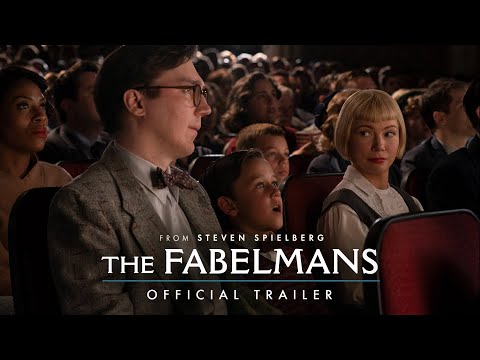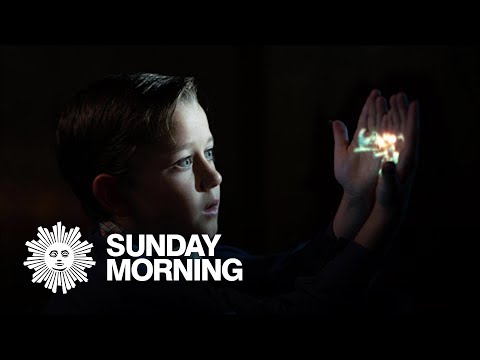You can’t begrudge Steven Spielberg for turning the camera on himself at this point in his career.
The 75-year-old legend behind “Raiders of the Lost Ark,” “Jaws,” “E.T. The Extra-Terrestrial” and “Lincoln” has earned the right to be self-indulgent, especially when it involves insights into his creative process.
“The Fabelmans,” loosely based on Spielberg’s formative years, finds him sharing the joys, and pains, of a cinematic life.
The story is as accessible, and wise, as we expect from the Oscar winner, a populist of the first order. It’s a shame some of the storytelling beats prove achingly familiar.

Young Sam Fabelman (Mateo Zoryon Francis-DeFord and, later, Gabrielle LaBelle) becomes obsessed with movies at an early age. Thank “The Greatest Show on Earth,” the 1952 drama that lit the lad’s fire for storytelling.
Or consider Sam’s parents. Dad (Paul Dano) breaks down mechanical problems for his son to absorb, while Mom (Michelle Williams) is a natural ham. Those distinct personas fuse in Sam, pushing him to make movies starring friends and family members.
Those films may be crude, but we see glimpses of the directorial genius to come.
RELATED: ‘BLOCKBUSTER’ REVEALS THAT FATEFUL SPIELBERG-LUCAS BOND
“The Fabelmans” starts with Spielberg in “Always” mode, and that’s hardly a compliment. The Fabelmans’ home life is cheerful and light, with Mom folding up paper tablecloths to cap each home-cooked meal.
Even Sam’s extended family, including an aunt with little love for his mother, can’t bring much tension to these sequences.
Spielberg, who co-wrote the screenplay with frequent collaborator Tony Kushner, is setting the dramatic table, but it’s still a storytelling mistake. We soon see that Sam’s parents aren’t happy together, to quote a beloved ’60s ditty. “Uncle” Bennie (Seth Rogen) is a constant presence in their lives, and he may hold the key to Mom’s restless spirit.
View this post on Instagram
We’ve seen divorce play a supporting role in Spielberg movies, including “E.T.” and “War of the Worlds.” “The Fabelmans” is more concerned with Sam’s artistic evolution, though, and at times that plays out like a mistake.
This story needs more friction, and it takes forever to arrive.
Some of that conflict arrives later in the film, when anti-Semitism and bullying get their close-ups. A teen-age Sam struggles to fit into his new California school, with his parents’ squabbling never far from mind.
The sequences, while suitably framed, seem almost beneath the story in question. We’ve seen bullying on screen countless times. What we haven’t seen, to paraphrase a trade magazine’s take on “The Fabelmans,” is an origin story quite like this.
Spielberg’s vision is often distinctive, as memorable as any modern-day stylist. “The Fabelmans” is more conventional in spirit, and that’s disappointing. Perhaps he wanted to keep the focus on his family and how life led him down an artistic trail.
Still, some show-stopping visuals might have reminded us, mid-movie, why Spielberg is such a consequential artist.

This season’s “Empire of Light” serves up a tribute to the movie going experience, down to fetishistic images of projectors in action. “The Fabelmans” proves far more successful at a similar goal.
A key third act sequence shows the power of storytelling, the ability to shape narratives in ways that even the artist can’t always explain.
Neither Spielberg nor his alter ego can explain the artistic process or even the results. They just … happen. “The Fabelmans” is the closest Spielberg can get to helping us understand the “how” in that question.
HiT or Miss: “The Fabelmans” starts slowly but builds into a personal, loving ode to cinema and family ties.
The post ‘Fabelmans’ Lets Spielberg Show How He Became Hollywood’s Golden Boy appeared first on Hollywood in Toto.
from Movies – Hollywood in Toto https://ift.tt/RG3l1AH

No comments:
Post a Comment